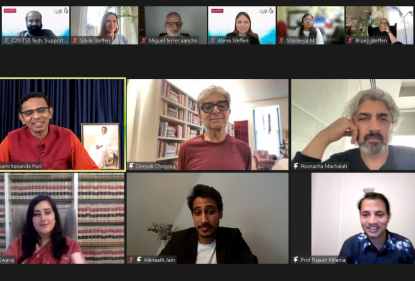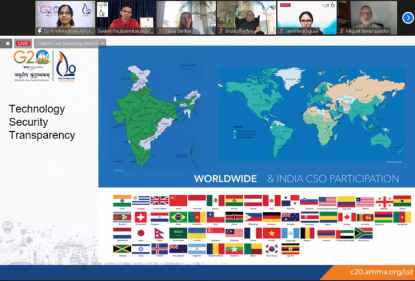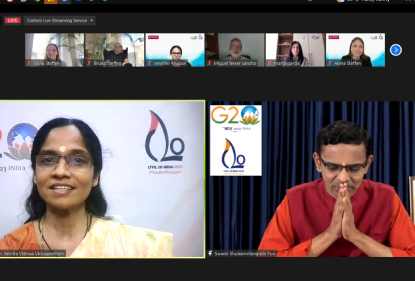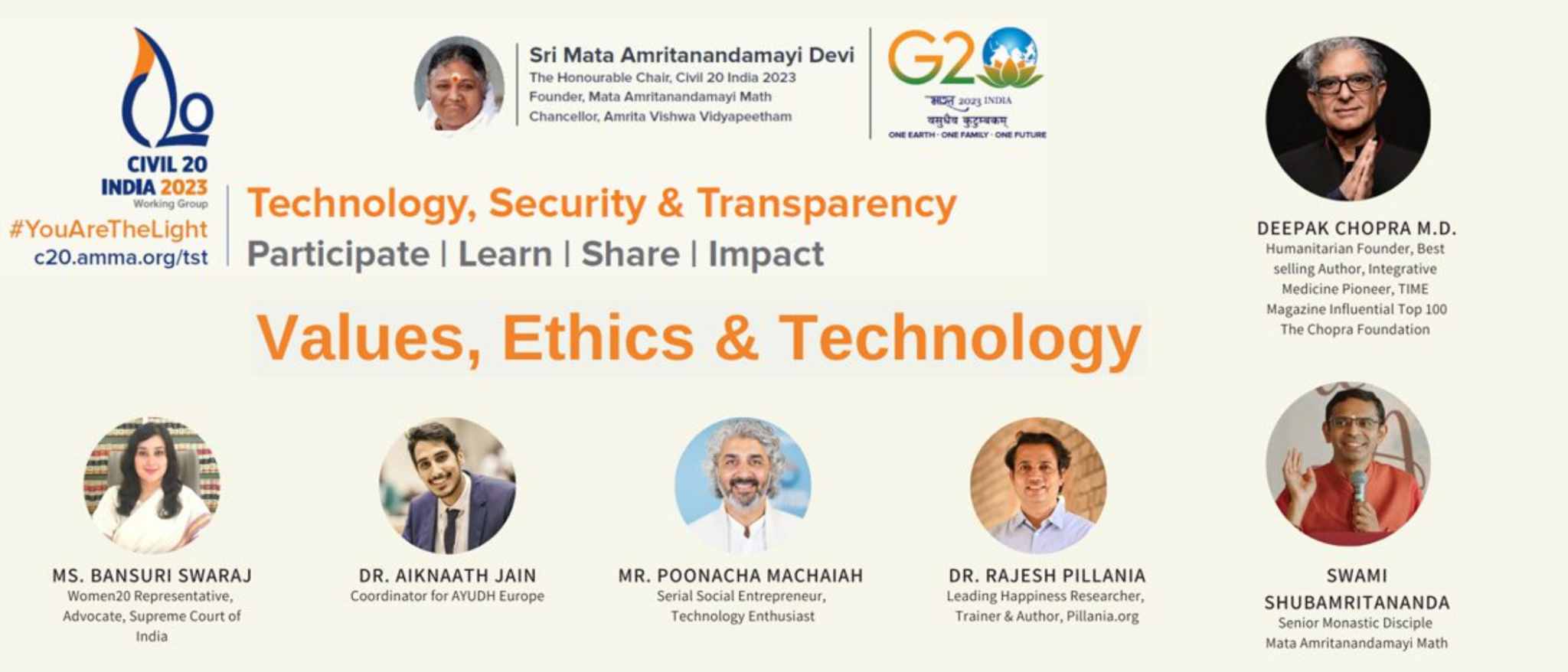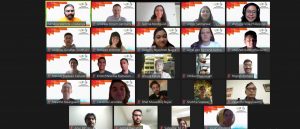Technology without ethics and values can lead to misuse and abuse
An insightful webinar on Values and Ethics in Technology, organised on the International Day of Conscience, attracted participants from 52 countries.
Deepak Chopra described the role of ethics and values in determining people’s relationship with technology. Technology is necessary for the future of human survival, the meta-biological evolution of which self-improvement is a by-product. The human race, due to our tribal tendencies paired with modern capacities, is in danger of sleepwalking to extinction characterised by war, eco-destruction, pandemics, lack of joy etc. The best use of technology is to amplify our capacity for evolution, which is characterised as 1. Seva, 2. Sangha or global community, and 3. Sadhana — a daily practice. The solution to every problem in the world is in these. Artificial Intelligence (AI) may be used to prevent the unethical use of AI and promote ethical guideline development.
Recommendations: Efficient time management, optimise the use of technology.
Poonacha Machaiah discussed the role of business leaders in innovation. As Conscious Technologists, technology creators should take a Hippocratic Oath. Leaders should be deliberate and mindful, creating long-term goals based on shared values.
Immersive technology has progressed to new frontiers of using the eyes. Metaceuticals are consumed in the metaverse, where children grow up on virtual assets like Roblox. Visual content leads to simulation, which creates belief, culminating in an embodiment system. Leaders should consider what virtual reality does for behaviour chain and interaction and champion values in online communities.
Recommendations: Compulsory courses in being a conscious technologist in the curriculum; shift to abundance consciousness and not scarcity consciousness.
Ms. Bansuri Swaraj answered the question of legislation for technology. Technology cannot be contained. The technology launched today can be obsolete within a year, and usage is unpredictable. Hence, legislation is not possible, unlike regulatory principles.
Drastic innovation gives way to scepticism and fear. We should embrace technology as vital for progress. To become conscious users of technology is to give moral values to youth and teach them that moderation is key. Parents should monitor children and teach them to use technology well. Secondly, schools must teach kids how to responsibly harness the world’s collective knowledge. Education should move beyond rote learning to research, innovation, application, and rigor.
Data security doesn’t have enough legislation.
Recommendations: Technology bring gender considerations to the mainstream for financial and digital literacy.
Dr. Rajesh discussed balancing our need for human connection with reliance on technology. He believes in people’s fundamental goodness, youth’s capabilities in handling technology and the knowledge that real happiness is derived from the alignment of our thoughts, speech, and actions.
Aside from setting good examples for kids, we need to teach conscious living techniques to change misconceptions and execute incremental implementation. He advocated group support for lasting behavioural changes.
Recommendations: Self-leadership, role modeling, undergo sustainability and values, ethics, and happiness courses.
Dr. Aiknaath Jain reported that young people had mixed reactions towards ethical regulations in technology use due to issues of free will, distrust of organisations, and fears of not reaching the fullest potential of technology. But unrestricted access has bred psychological overdependence and easy dopamine-release addiction. Attention spans have reduced to eight seconds in the last six years. Further, misinformation and isolation have led to a distortion of reality whereby people curate their lives on social media.
Recommendations: Teach responsible use of technology, promote digital literacy and mindfulness studies, and include young people in decision-making.
